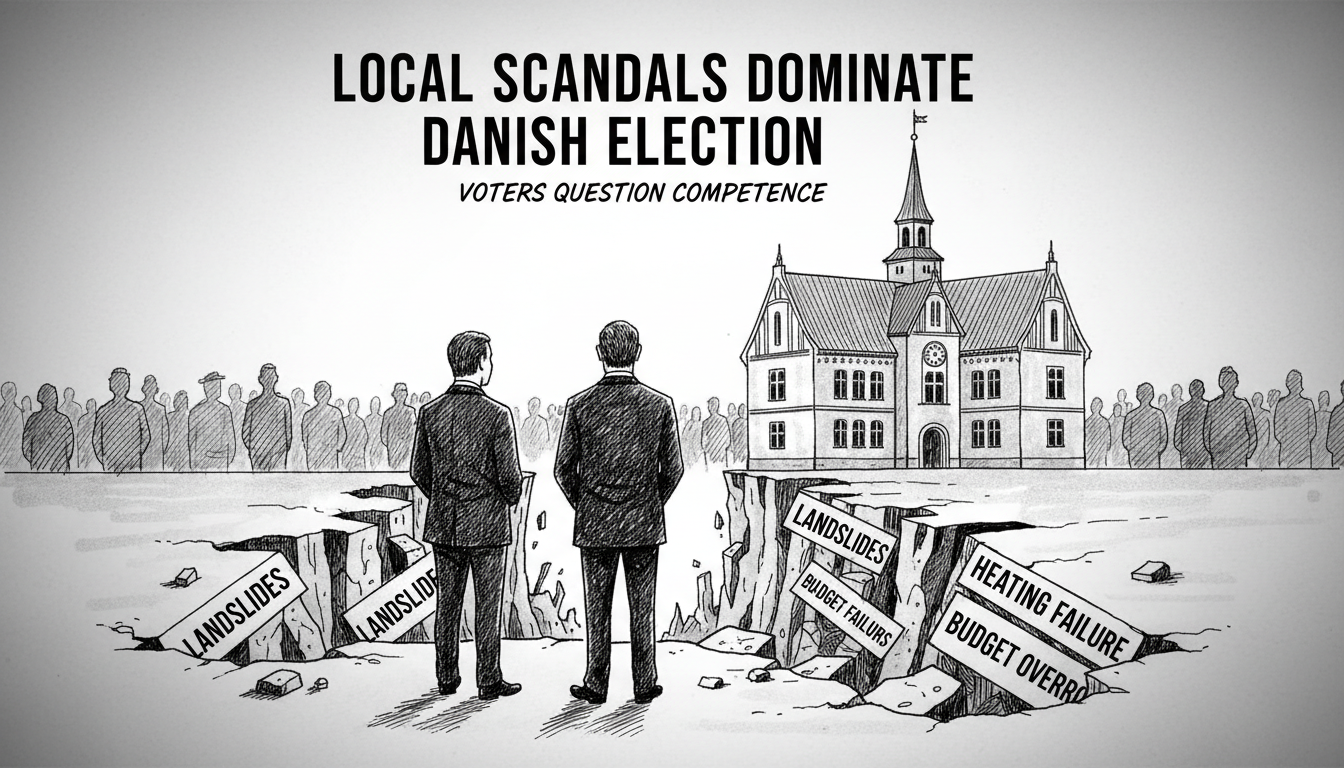Danish voters face critical municipal decisions as election day approaches. Landslides, heating system failures, and budget overruns dominate local headlines across the country. These municipal scandals could determine voter behavior in the upcoming local elections.
Local governments manage essential services that directly impact daily life. They oversee schools, elderly care, road maintenance, and environmental protection. When these services fail, citizens experience immediate consequences. The current controversies highlight systemic challenges in municipal governance.
In recent months, several municipalities reported serious infrastructure problems. Some areas experienced dangerous landslides that threatened residential properties. Other communities faced heating system breakdowns during cold periods. Multiple municipalities also revealed substantial budget overruns affecting public services.
These incidents raise questions about municipal oversight and financial management. Voters now question whether local officials properly monitored public projects. They wonder why warning signs went unheeded in some cases. The scandals have damaged public trust in local government institutions.
Danish municipal elections occur every four years. Voters elect council members who then select mayors and allocate budgets. Local governments collect about half of all Danish taxes through income and property taxes. This gives them significant financial responsibility.
International residents in Denmark should note these developments closely. Municipal decisions affect integration programs, language education, and local community services. Expats living in affected areas might experience service disruptions or tax increases.
The timing of these revelations appears significant. With elections approaching, opposition parties highlight governance failures. Ruling parties defend their records while promising improvements. Voters must weigh these competing narratives when casting ballots.
Historical patterns suggest local scandals can sway close elections. Danish voters typically prioritize practical concerns over national politics in municipal elections. Service quality and tax levels often determine voting behavior more than ideological positions.
These municipal issues reflect broader challenges facing local governments worldwide. Aging infrastructure requires substantial investment everywhere. Climate change increases pressure on public systems. Demographic shifts create new service demands.
The election outcome will shape municipal policies for the next four years. New councils might implement stricter oversight measures. They could adjust tax rates to address budget shortfalls. Infrastructure investments might receive higher priority.
Voter turnout typically drops in municipal elections compared to national contests. These scandals might motivate more citizens to participate. They could also increase protest voting against established parties.
The final election results will reveal whether voters punish incumbent administrations. They might indicate public tolerance for governance failures. The outcome could signal changing expectations for local government performance.

